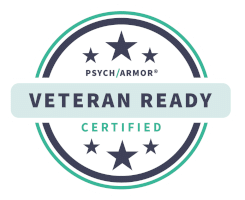Home | Treatment | What We Treat | Anxiety Disorders
What We Treat
Anxiety Disorders
Panic disorders, phobias, and generalized or social anxiety — whether due to genetics or resulting from trauma — can interfere with daily life.
Anxiety disorder treatment at Pasadena Villa
Defining anxiety disorders
Anxiety disorders are real illnesses with real causes — and they’re more common than you might think. According to the National Alliance on Mental Illness, nearly one in five Americans (more than 18%) are affected by anxiety. It can be triggered by a combination of factors, including environmental stressors, genetics, and trauma.
While there are no lab tests that diagnose anxiety, doctors may test for physical illnesses that could be causing the symptoms before referring to a mental health professional for diagnosis and treatment. It’s common for someone’s mental health history also to include co-occurring conditions like depression or addiction. That’s why it’s essential to seek help from a trained professional who can accurately diagnose all accompanying conditions and prescribe a comprehensive course of treatment.
More than 18% of Americans are affected by anxiety nationwide.
National Alliance on Mental Illness
FAQs
Questions about anxiety disorders
What are anxiety disorders?
Anxiety disorders are mental health conditions caused by a combination of factors, including brain chemistry, genetics, and environmental stressors. Trauma, prolonged stress, or significant life events can trigger anxiety, and it can affect individuals of all ages.
What are common symptoms of anxiety disorders?
Common symptoms of anxiety disorders include:
- Persistent feelings of apprehension or dread
- Feeling tense, jumpy, or restless
- Irritability or difficulty relaxing
- Excessive worry or fear, often expecting the worst
- Physical symptoms like a pounding heart, shortness of breath, or upset stomach
- Sweating, tremors, or twitching
- Headaches, fatigue, or trouble sleeping (insomnia)
Due to the range of severity of anxiety symptoms — some of which can be debilitating — it’s crucial to seek treatment if you’re experiencing any of these symptoms.
When should I seek help for anxiety disorders?
You should seek help if anxiety symptoms are interfering with your daily activities, relationships, or ability to function at work or school. If you find it difficult to control your emotions or feel a general sense that something isn’t right, it’s important to reach out for support.
Pasadena Villa
Our Levels of Care
From residential treatment to partial hospitalization and intensive outpatient programs, our continuum of care is designed to meet individuals at every stage of their recovery journey.
Take the first step toward recovery.
Our admissions experts are here to answer your questions and help you begin the process.
Explore our locations or fill out our contact form today.
Your privacy is our priority. All communication is completely confidential.




